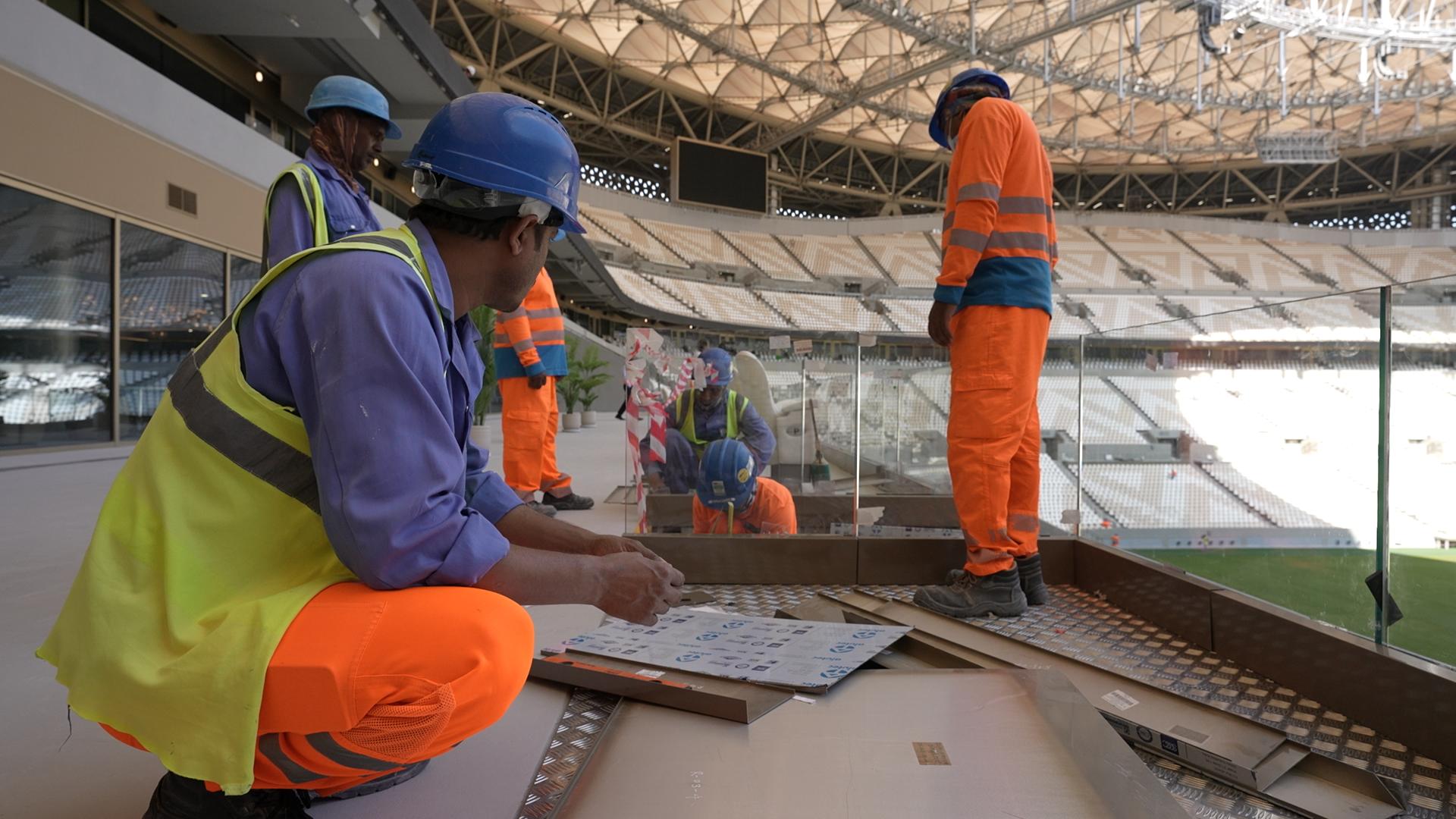In April, Qatar was appointed as the Group of Arab States’ coordinator in the International Labour Organisation to help coordinate between the Arab states in a bid to unify positions on international labour issues.
Qatar’s efforts and “great strides” in the field of worker’s rights to provide security and safety for labourers in the country has been praised by the Director-General of the Arab Labour Organisation (ALO) Fayez Ali Al Mutairi.
The official also noted Doha’s role in providing security and safety for labourers in the country making a special note to those working on the facilities dedicated to FIFA World Cup Qatar 2022.
In an exclusive interview with Qatar News Agency, held at the sidelines of the International Labour Conference in Geneva, Al Mutairi hailed Qatar’s enactment of legislations to safeguard workers’ rights.
He highlighted several visits to the Gulf country since assuming his role, where he was briefed on housing and workplace for labourers across the country.
Al Mutairi also noted Qatar’s efforts in training and qualifying labour inspectors in cooperation with the organisation, as well as its executive decision to raise the minimum wage.
The Kuwaiti official further expressed that he is keen to witness effective participation in International Labour Organisation (ILO) conference and Arab and regional coordination to attain successive levels in meeting needs of three parties involved with production, namely governments, business owners, and workers.
He also cited the organisation’s “preparation of the Arab Group’s observations on the annex to the report of the Director-General of ILO Guy Ryder, on the negative effects of the Israeli occupation on workers and business owners in Palestine and the occupied Arab territories.”
The organisations raises its “demand for the international community to stop settlement expansion and not to legalise the increase and spread of Israeli settlements in the occupied West Bank, including East Jerusalem and the occupied Golan,” he added.
Qatar and the ILO
Qatar’s Minister of Labour Ali bin Saeed bin Smaikh Al Marri was elected as the Vice-President of the Labour Conference in late May in Geneva.
The United Nation’s ILO said Al Marri was elected as part of its recognition for Doha’s pivotal role in developing its labour sector, including its introduction of monumental reforms.
The Gulf country has been working closely with ILO as well as other international entities to improve the local work environment. The ILO opened its first office in Qatar in 2018.
The appointment of Al Marri as the country’s new labour minister was seen as a crucial step in improving the local worker sector. Al Marri was previously the chairman of Qatar’s National Human Rights Committee.
In November 2021, Al Marri, the Ministry of Public Health, and the ILO signed a Memorandum of Understanding to cooperate in data collection to better assess work-related injuries and deaths.
The agreement came as a swift response to an Amnesty International report titled “Reality Check” as well as a recent ILO report, both of which exposed gaps in the country’s data collection regarding expatriate workers’ injuries and deaths.
Qatar’s labour reform efforts
Since being awarded rights to host the FIFA World Cup 2022 a decade ago, Qatar has found itself under the international spotlight, with waves of scrutiny from the west over conditions of migrant workers and a lack of adequate laws to protect them, prompting the Gulf country to take lead in implementing changes.
Qatar and its relevant governmental bodies have introduced historic reforms.
Among the most major steps was the dismantling of the controversial Kafala System which stopped workers from freely transfering jobs. Another major reform is the region’s first ever non-discriminatory minimum wage law, introduced in 2021.
In May last year, Qatar’s Ministry of Administrative Development, Labour and Social Affairs introduced a unified platform for complaints and disputes, which allows all members of society to submit reports against violations of the Labor Law and their employers.
In October 2021, Qatar held its first ever legislative elections for the two-thirds of the advisory Shura Council, where 30 out of the 45 members of the Council were elected in
public vote. In the elections, the Amir Sheikh Tamim bin Hamad Al Thani elected two women, neither ran in the elections, with one elected as Vice-Chairperson.
“[Qatar is] constantly trying to improve, and full of hope, for a brighter future. We are so proud of the development, reform, and progress we have made, and we are grateful for the spotlight that the World Cup provided,” said Qatar’s Amir in May during the World Economic Forum in Davos.







